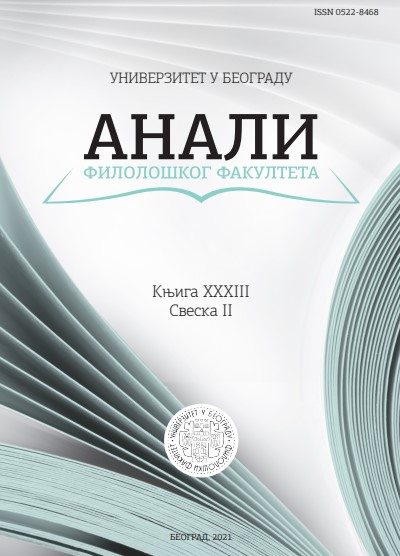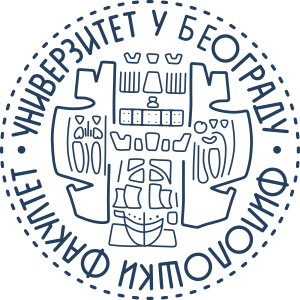Sanjaju li androidi električne ovce? kao simulacija detektivskog romana
DOI:
https://doi.org/10.18485/analiff.2021.33.2.17Кључне речи:
detektivska književnost, naučna fantastika, Filip K. Dik, Darko Suvin, androidi, androidizacijaАпстракт
Posmatrajući roman Sanjaju li androidi električne ovce? iz ugla teorije mogućih svetova prema Lubomiru Doleželu i teorijskih razmatranja Darka Suvina o naučnoj fantastici, ovaj rad analizira način na koji pisac prilagođava zaplet karakterističan za detektivsku književnost, epistemičku pripovest priče sa tajnom (mystery story) u unutrašnju potragu glavnog junaka naučnofantastične pripovesti za transformacijom neznanja o sebi u samospoznaju. Nasuprot dvodimenzionalnim likovima klasične detektivske pripovesti, Dikovi likovi su višeslojni i njihove motivacije nije lako dokučiti. Na taj način, Dik čitaocu uskraćuje klasično eskapističko razrešenje detektivske književnosti koje za cilj ima otpuštanje napetosti i odmor od realnosti. Dik čitaoca prisiljava da se sa realnošću suoči umesto da od nje beži. Gotovo sva njegova dela primoravaju čitaoca da se na svet u kome živi osvrne sa podozrenjem. Težnja ka spoznaji stvarnosti svrha je takvog književnog dela.
Downloads
Downloads
Објављено
Број часописа
Рубрика
Лиценца

Овај рад је под Creative Commons Aуторство-Дели под истим условима 4.0 Интернационална лиценца.
Authors who publish with this journal agree to the following terms:
- Authors are confirming that they are the authors of the submitting article, which will be published (print and online) in the journal Anali filološkog fakulteta by the Faculty of Philology, University of Belgrade (Faculty of Philology, Studentski trg 3, 11000 Belgrade, Serbia). Author’s name will be evident in the printed article in the journal. All decisions regarding layout and distribution of the work are in hands of the publisher.
- Authors guarantee that the work is their own original creation and does not infringe any statutory or common-law copyright or any proprietary right of any third party. In case of claims by third parties, authors commit their self to defend the interests of the publisher, and shall cover any potential costs.
- Authors retain copyright and grant the journal right of first publication with the work simultaneously licensed under a Creative Commons Attribution-ShareAlike 4.0 International License that allows others to share the work with an acknowledgement of the work's authorship and initial publication in this journal.
- Authors are able to enter into separate, additional contractual arrangements for the non-exclusive distribution of the journal's published version of the work (e.g., post it to an institutional repository or publish it in a book), with an acknowledgement of its initial publication in this journal.
- Authors are permitted and encouraged to post their work online (e.g., in institutional repositories or on their website) prior to and during the submission process, as it can lead to productive exchanges, as well as earlier and greater citation of published work.





